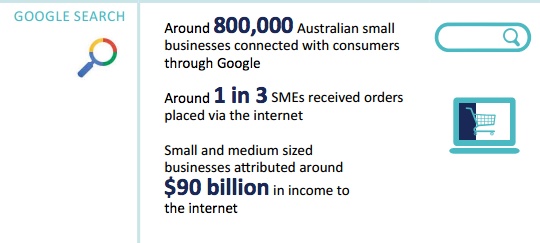You may have had to travel across the city, or wait for a book to arrive from out of state. You might have had to call a university, and if you’re lucky, receive a fax, or for more general knowledge reference an encyclopedia.
The ability to call on the world’s knowledge with a flick of your fingers would have seemed like a superpower.
 |
| Source: AlphaBeta |
The first search engine, Archie, was created in 1990 by Alan Emtage, a student at McGill University in Montreal, before there was even a World Wide Web. The first website only went live on August 6, 1991, and contained information on how readers could set up their own web server.
By the time Larry Page and Sergey Brin registered the Google.com domain in September 1997 they had decided to name their creation after the word "googol," a mathematical term for the number represented by the numeral 1 followed by 100 zeros, reflecting the seemingly infinite amount of information on the web.
The invention of Search allowed digital records across the world to be indexed and made available for every person with access to the web. Today we take for granted the fact that Search allows us to find information for work or leisure and connects us with businesses that provide services we want to use and goods we want to purchase. Nowadays the majority of Google searches in many nations are made on computers that fit in people’s pockets.
Search has given all of us information superpowers, but what does that mean for Australia today? We asked the experts at AlphaBeta to get into the numbers.
AlphaBeta estimates that in the past year:
- Around 15.5 million Australians used Google Search
- The average Australian saved around 5 minutes per day, or 31 hours per year, using Google Search, which equates to $9.8 billion of value
- Around 840,000 Australian businesses connected with consumers through Google
These headline figures mean improvements in the lives of everyday Australians. Business owners Sandra and Stuart from Bay Fish N Trips, for example, have transformed their business, and their lives, using digital tools. They’ve experienced 55 per cent revenue growth since beginning to advertise their business online. Where they’d previously had half-full fishing charters, they now have full boats. Stories like this are unfolding all around Australia.
 |
| Source: AlphaBeta |
In 1990, students answered around 3.5 million questions per day using offline resources like library books and tutors. In 2015, students answered around 25 million questions per day using offline and online resources such as Search and YouTube. Now that’s a superpower. You can read the full report from AlphaBeta here.